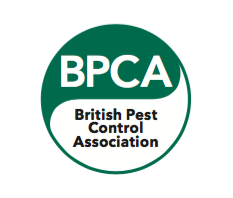What happens if food premises get a Hygiene Emergency Prohibition Notice?
What happens if food premises get a Hygiene Emergency Prohibition Notice?
Pests in your food premises could get your business shut down under a Hygiene Emergency Prohibition Notice. As a business owner, what measures can you take to prevent this?
Adequate pest control in restaurants and other food premises is a legal requirement. It is governed by various food hygiene regulations and therefore should be taken seriously. Inspections are carried out by local authority Environmental Health Inspectors. They work within the guidelines laid down by the Food Standards Agency. However, if these standards are not met, food may be declared unsafe and this could result in your business being closed down. Closure of your business due to pest problems could lose you and your business money. It could also risk immense damage to the reputation of your company. Therefore, your business needs to show that it has adequate pest control in place.

Pests In Food Premises
The three groups of pests that are usually a problem with food premises are:
- Rodents – rats and mice. It only takes a matter of days for a rodent infestation to get out of hand. Not only are rats and mice extremely destructive but they also carry diseases putting your customers’ health at risk.
- Insects – cockroaches, beetles, ants and flies. Insects can hang around for a long time. Some, such as flies, carry also disease and can contaminate food.
- Birds – pigeons, seagulls. Some birds may enter your premises to get food or build nests. Pigeons especially cause a nuisance in numbers with their droppings causing pavements outside your business to become slippery. They are also known to carry diseases so should be kept out of your business.
Regulation and Procedure
The business owner is responsible for ensuring that there are appropriate arrangements in place to prevent pests from entering the premises. The layout, design, construction, and size of food premises all play a role in meeting food hygiene standards.
Inadequate pest control procedures can lead to:
- Contamination of raw materials
- Lost revenue
- Loss of talented staff
- Possible fines and charges
- Loss of trust within the community
Concerned that your premises may have a pest problem?
If you are concerned that your premises may be at risk, it is advisable to take action immediately. PEST UK advises the following procedures:
- Close the food preparation, storage, and service areas immediately.
- Call a reputable pest control company to carry out a survey and any necessary treatments.
- Dispose of contaminated stock immediately.
- Thoroughly clean and disinfect all equipment.
- Store all food off the floor in sealed containers.
- Carry out an inspection to ensure that there are no holes or gaps under doors and that windows all have a pest screen to prevent any pests from gaining access.
Find out more about Pest Control in Food Premises from the BPCA or download the Food Standards Agency Food Safety Checklist
Pest Control Contract
It is always a good idea to have a pest control contract for food premises so that you ensure the best possible protection from pests. As a result, a pest control contract will help to minimise the risk of your premises receiving a Hygiene Emergency Prohibition Notice.
PESTUK offer reliable and affordable pest control contracts for food premises.

PESTUK are full members of the BPCA, the governing body for pest control in the UK. Using a BPCA member company ensures you have a qualified, fully insured company treating your pest problem. We can cater yearly pest control contracts to cover pests that are likely to affect your business, and can also schedule routines visits at your convenience.
Find out more or give us a call to arrange a quote.

